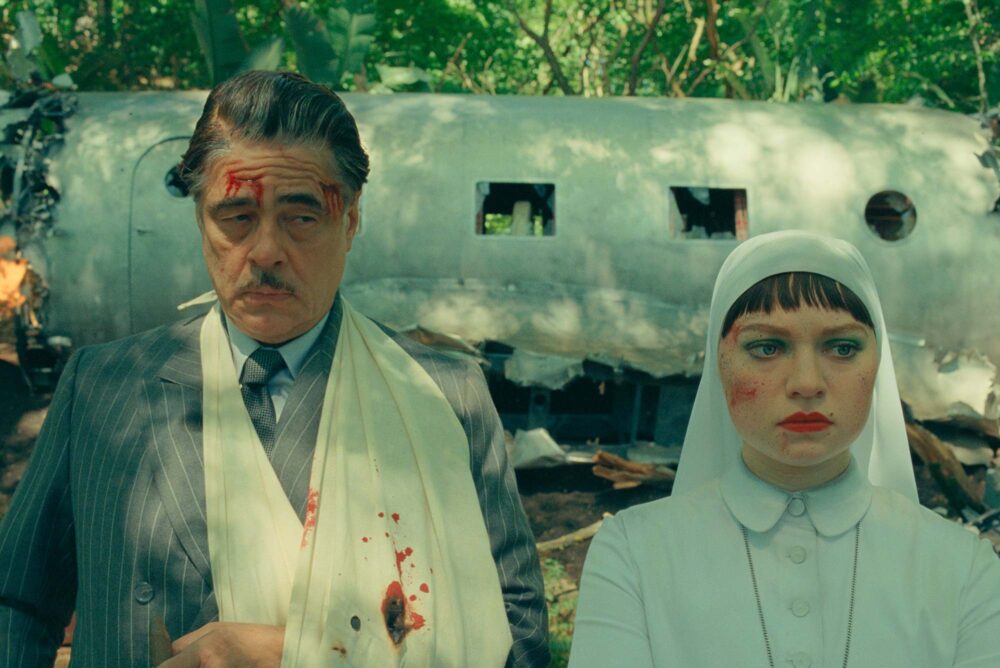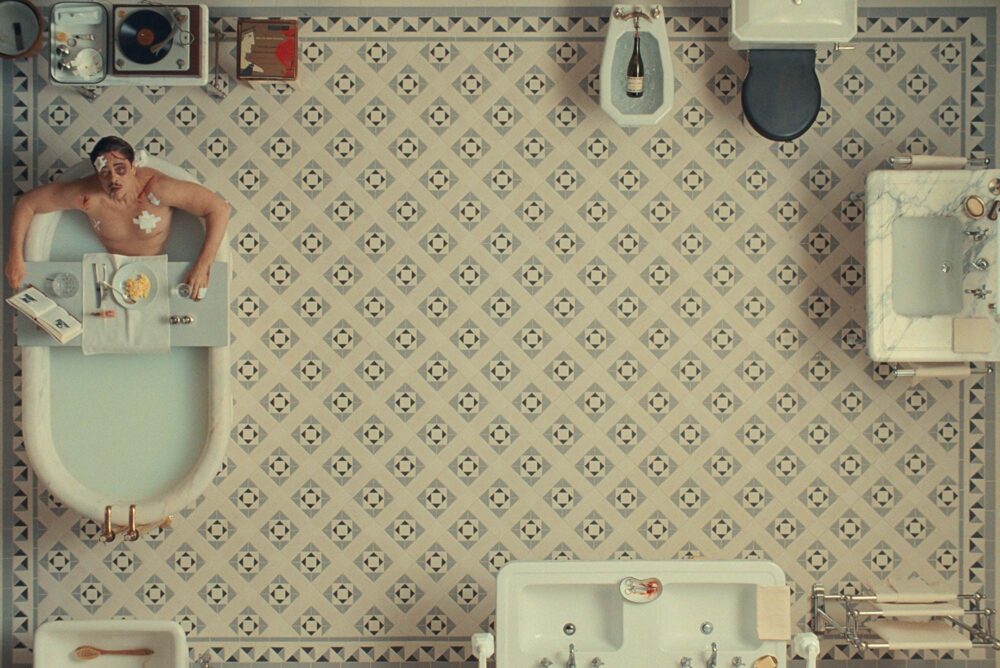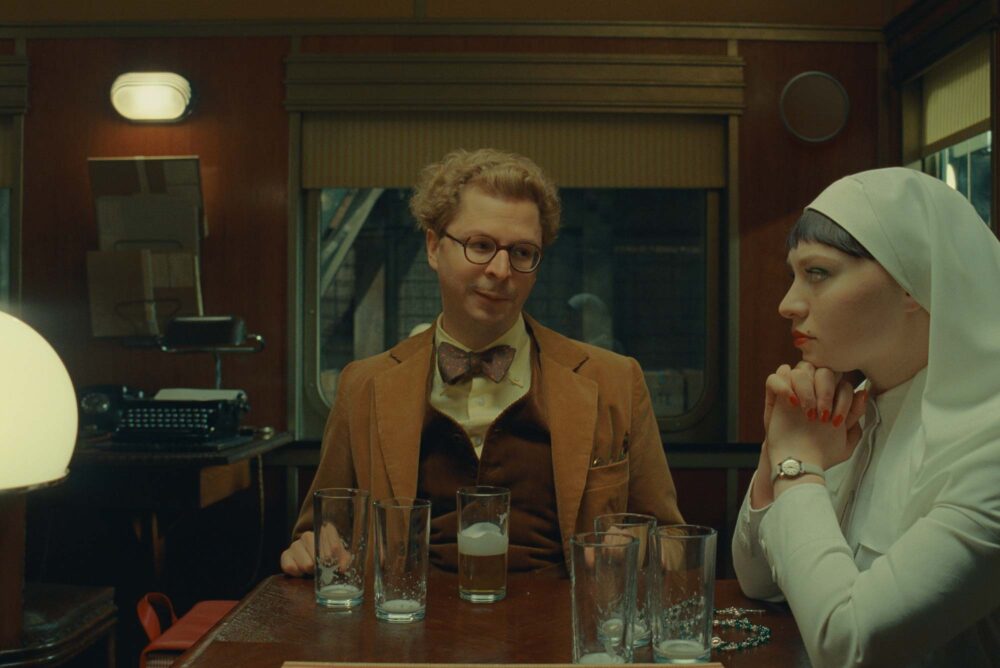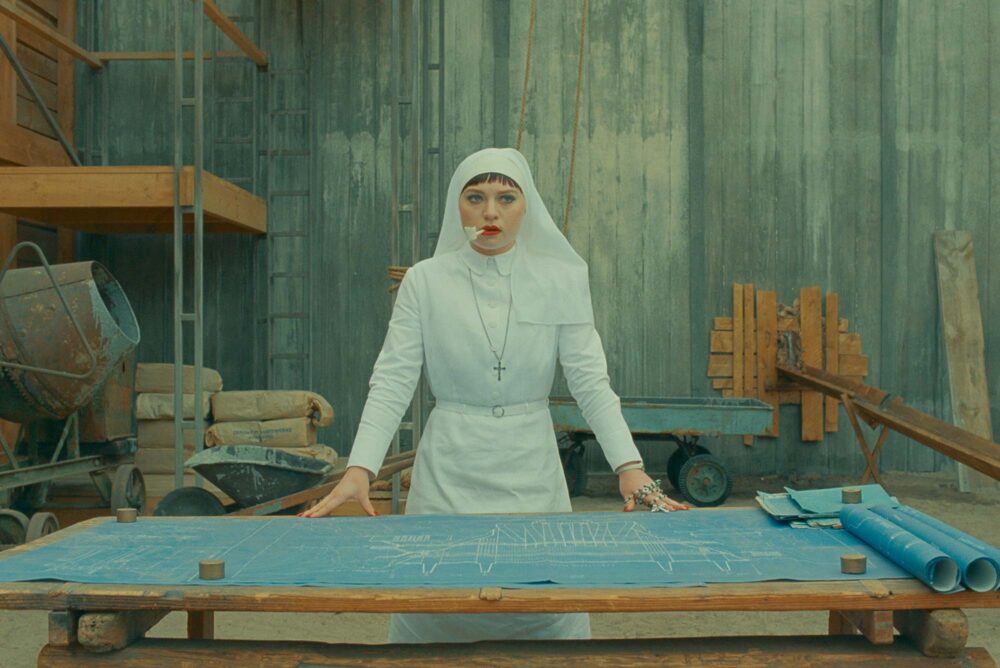Words by JANE CROWTHER
The scheme at the centre of Wes Anderson’s latest is as precisely matriculated and detailed as the auteur’s work. Wily 1950s business tycoon Zsa-zsa Korda (Benicio del Toro) decides to go full hog on a business plan to build an Empire via infrastructure, deals and percentage financing after surviving his sixth plane crash (one of the film’s best sequences). A Charles Foster Kane crossed with Trump egotist who wants to win at all cost, Korda is determined to leave a legacy – in business via his scheme, and generationally via his offspring. Though he has nine sons, he reconnects with his 20 year-old daughter Leisl (Mia Threapleton), a nun who carries unresolved family hurt and a pipe. Korda’s biggest deal then involves globetrotting via complex sets and dioramas, to raise capital and outwit a bureaucratic group who are falsely inflating costs – all while handing out hand grenades as gifts and outrunning a mysterious assassin who keeps trying to pop him. Along for the ride: Michael Cera’s delightful Norwegian tutor Bjorn, who has a dazzling collection of insects and ends up working above his paygrade as Zsa-zsa suffers another plane crash, quicksand and a battle to the death in a luxury hotel.

Del Toro, in practically every frame, is a hoot as Zsa-zsa, a man who is casual about death, serious about cards and a fan of hot baths. He’s matched by deadpan Threapleton who can transmit an exasperated eyeroll without actually moving her peepers. Another newbie to the Anderson stable, Riz Ahmed, makes an impression as Prince Farouk, while the returning troupe (Tom Hanks, Jeffrey Wright, Scarlett Johansson, Bill Murray et al) do their fast-talking, comedic thing. But it’s Cera who really steals focus with a performance so singularly sweet and a lilting Scandinavian accent so charming that one wishes Anderson had given this character a whole film to himself.


Though there’s plenty of physical gags and willfully opaque business speak which could be interpreted as Anderson criticising capitalism, the matter at the core of the hijinks is the redemption of a man and the relationship between a father and daughter. And to that end – and the film’s end – there is emotional satisfaction. As expected, production design is a whimsical trove and monochrome scenes set in heaven (with Murray as God) are quirky sojourns. Anderson fans will likely not be unduly disappointed.

Words by JANE CROWTHER
Photographs courtesy of TPS PRODUCTIONS/FOCUS FEATURES
The Phoenician Scheme premiered at the 78th Cannes Film Festival


